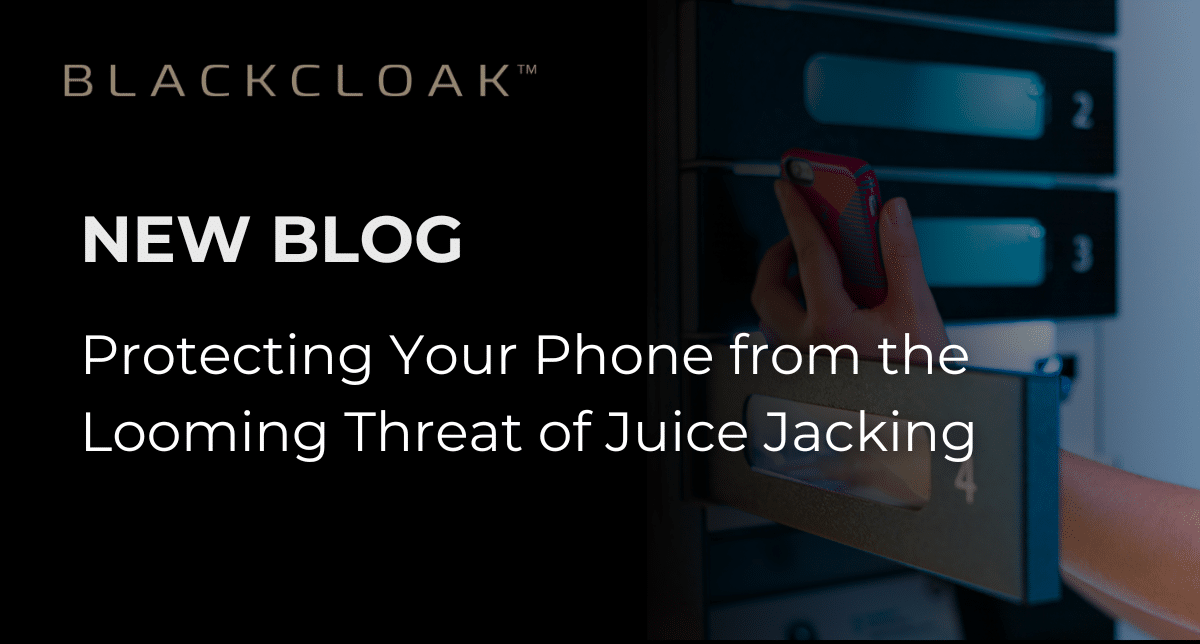Protecting Your Phone from the Looming Threat of Juice Jacking

Juice jacking is causing alarm among executives, board members, and high net worth individuals, as well as federal authorities, tech pundits, and news outlets alike. This insidious form of cyberattack, known as “juice jacking,” poses a significant risk to unsuspecting individuals who innocently plug their phones into public charging stations. It’s a potential menace to your personal information and devices.
Understanding Juice Jacking
Juice jacking refers to the act of surreptitiously installing malicious software onto smartphones or extracting sensitive data while connected to a public charging station. The concept may sound like a plot straight out of a science fiction movie, but it has been a cause for concern for more than a decade. The modus operandi of a juice jacking attack involves compromising the USB connection of charging stations, allowing hackers to gain unauthorized access to the connected devices.
The Perils of Public Charging Stations
Public charging stations have become increasingly prevalent in our modern world, offering a convenient solution for individuals on the go to recharge their devices. However, their convenience comes at a price, as they present an attractive target for cybercriminals seeking to exploit unsuspecting victims. By compromising these charging stations, hackers can gain unauthorized access to personal data, install malware, or even remotely control your device, putting your privacy and security at risk.
Mitigating the Threat
BlackCloak is committed to safeguarding your digital well-being, we recommend adopting the following preventive measures to minimize the risk of falling victim to juice jacking attacks:
- Be cautious and vigilant: Exercise discretion when using public charging stations, particularly in unfamiliar or high-risk locations. Awareness is the first line of defense against potential threats.
- Use personal charging equipment: Carry your own charging cable and power adapter, ensuring that you have complete control over the charging process. This mitigates the risk of compromising your device through unknown or tampered cables. You can also use USB data blockers that disable the data functionality and only permit the power functionality of a charger.
- Opt for alternative power sources: Consider using portable power banks or reputable charging stations provided by trusted establishments. These alternatives reduce the chances of falling prey to malicious actors seeking to exploit public charging stations.
- Disable unnecessary features: Before connecting your device to any charging station, disable features like data transfer or USB debugging mode. This precautionary step limits potential attack vectors and reduces the likelihood of unauthorized access.
- Do not select “Trust” when plugging into an unknown charger if the message pops up on your device’s screen. This could permit your device to lower its security settings and allow the device on the other end to access your device.
- Install security updates and antivirus software: Regularly update your device’s operating system and applications to patch any known vulnerabilities. Additionally, install reputable antivirus software to detect and block potential threats, adding an extra layer of protection against juice jacking and other cyberattacks.
While the threat of juice jacking has persisted for over a decade, it is crucial to remain informed and proactive in protecting our devices and personal information. By staying vigilant, using personal charging equipment, and adopting security best practices, we can minimize the risk of falling victim to this nefarious cyberattack.
As a cybersecurity company, BlackCloak will continue to invest our efforts in developing robust solutions to combat emerging threats, ensuring a safer digital environment for all. Remember, your security starts with you, so stay informed, stay cautious, and stay protected.
To learn more about cyber protection for your personal digital life, click here.








